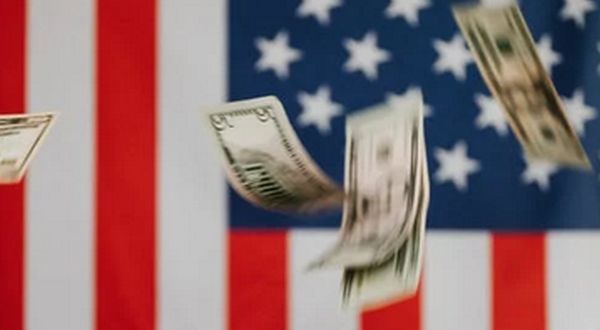|
Getting your Trinity Audio player ready...
|
The Ever-Increasing Bar to Join America’s Richest 1% Has Just Become Tougher
Edited by: TJVNews.com
Entering the ranks of the top 1% of the wealthiest Americans has become more challenging than ever, with new data revealing a significant surge in the threshold required to join this elite club, as was recently reported by CBS News. According to Knight Frank’s 2024 Wealth Report, individuals now need a staggering $5.8 million to qualify for the esteemed 1%, marking a notable 15% increase from the previous threshold of $5.1 million just one year ago.
The upward trajectory of this threshold is attributed to robust wealth creation, buoyed by a thriving U.S. economy. According to the information provided by CBSNews.com, the report highlights a remarkable uptick in the number of ultra-high net worth individuals (UHNWI), defined as individuals with assets worth at least $30 million. In 2023 alone, over 4% more UHNWIs were minted globally, pushing the total count to nearly 627,000 individuals.
Surprisingly, despite its reputation as a bastion of wealth, the United States ranks fourth globally in terms of the wealth threshold required to enter the 1%. The report on the CBSNews.com web site said that topping the list is Monaco, where aspiring members of the 1% must possess a staggering $12.9 million in wealth. This measurement encompasses various assets, including investments, cash, and primary and secondary residences, according to Knight Frank’s wealth assessment model.
The stark disparity between the rich and poor, both on a global and domestic scale, is further underscored by these figures. As was indicated by CBSNews.com, Oxfam America’s report, “Inequality Inc.,” reveals a concerning trend where five billion people worldwide have experienced a decline in wealth since 2020, while the fortunes of the five richest men in the world have more than doubled during the same period.
Oxfam’s research attributes part of this rising inequality to the practices of big corporations, which have actively opposed minimum wage increases and unionization efforts. Moreover, CBSNews.com reported that a significant generational wealth transfer is underway, with an estimated $90 trillion worth of assets set to move from the silent generation and baby boomers to younger generations like Gen X, millennials, and Gen Z over the next two decades.
Millennials, in particular, are poised to become the wealthiest generation in history, signaling a shift towards values that prioritize societal and environmental well-being alongside economic prosperity. The CBSNews.com report also noted that Ben Whattam, co-founder of Modern Affluence Exchange, underscored this shift in mindset, noting that the next generation is unlikely to perpetuate the relentless pursuit of growth at any cost.
The report also sheds light on the widening chasm between affluent and impoverished nations, emphasizing the urgent need for global initiatives to address economic disparities and promote inclusive growth. As wealth continues to concentrate in the hands of a select few, the imperative for equitable wealth distribution and sustainable economic practices becomes increasingly apparent on both the national and international stage.
Liam Bailey, the global head of research at Knight Frank, emphasized these findings, noting that smaller countries like Monaco boast a higher concentration of extremely wealthy individuals, drawn by favorable tax laws and other incentives, CBSNews.com reported.
Following closely behind Monaco are Luxembourg and Switzerland, with thresholds of $10.8 million and $8.5 million, respectively. CBSNews.com reported that in contrast, larger nations like the United States, with a threshold of $5.8 million, and Singapore, at $5.2 million, still require significant wealth but fall below the stratospheric levels seen in smaller, wealth-centric nations.
Bailey further highlighted the evolving landscape of wealth taxation, particularly in Western countries grappling with government deficits and the imperative to raise tax revenue. The CBSNew.com report said that he anticipates a greater policy focus on wealth distribution and taxation, as governments seek to navigate the delicate balance between taxing wealth and fostering its growth within their economies.
In the United States, several states have proposed wealth taxes aimed at extracting billions from the wealthiest individuals. CBSNews.com also said that states such as California, Connecticut, Hawaii, Illinois, Maryland, Minnesota, New York, and Washington are considering such measures, reflecting a broader trend towards wealth redistribution and increased taxation on the ultra-rich.
The delineation of wealth thresholds across countries underscores the widening gap between the affluent and the rest of society, prompting calls for greater scrutiny of wealth distribution and taxation policies. As policymakers grapple with these complex issues, the need for equitable and sustainable approaches to wealth management becomes increasingly apparent.
With global economic disparities continuing to widen, the conversation around wealth distribution and taxation is likely to intensify, shaping the future trajectory of economic policy and societal well-being. As countries strive to strike a balance between economic growth, fiscal responsibility, and social equity, the imperative for informed and inclusive policymaking has never been greater.




